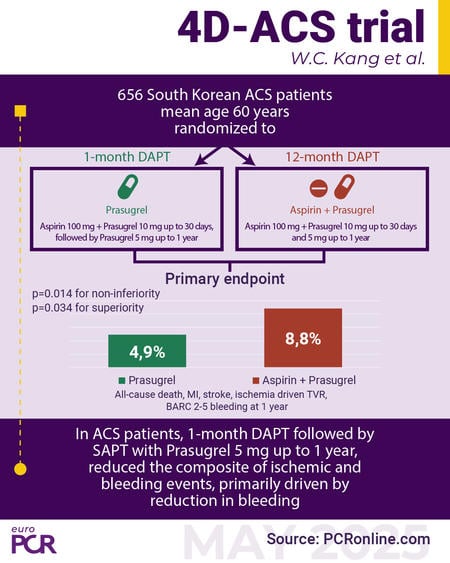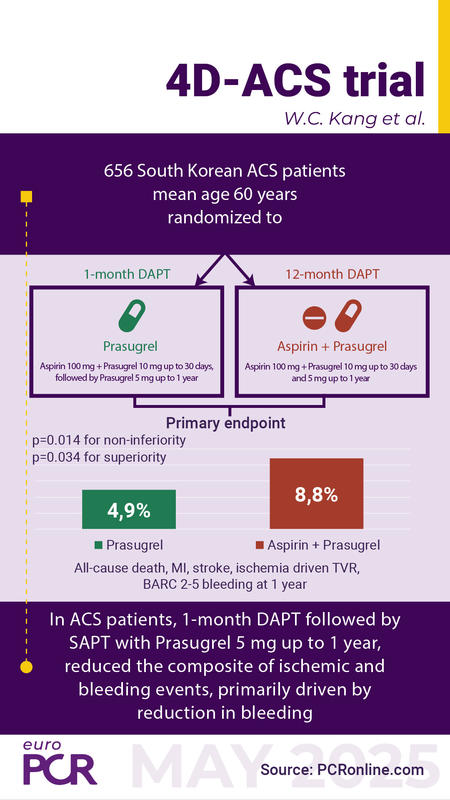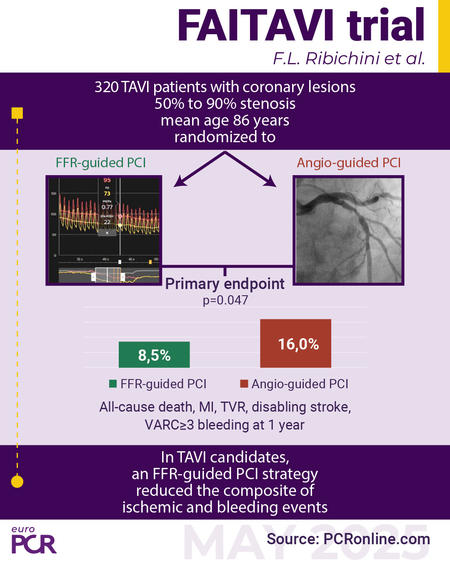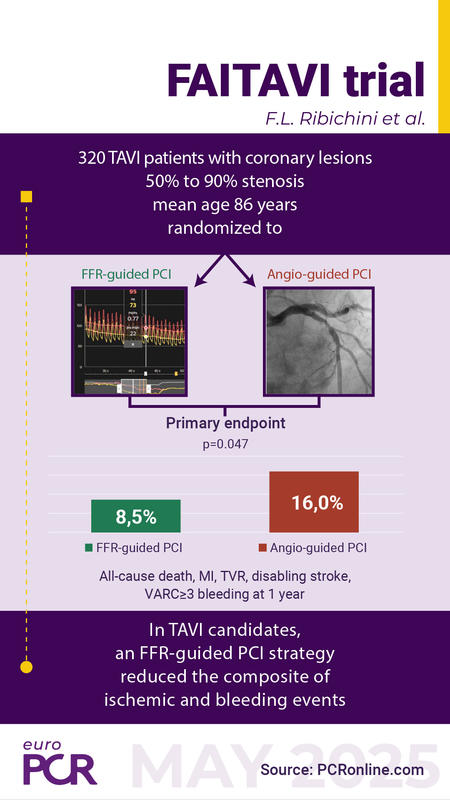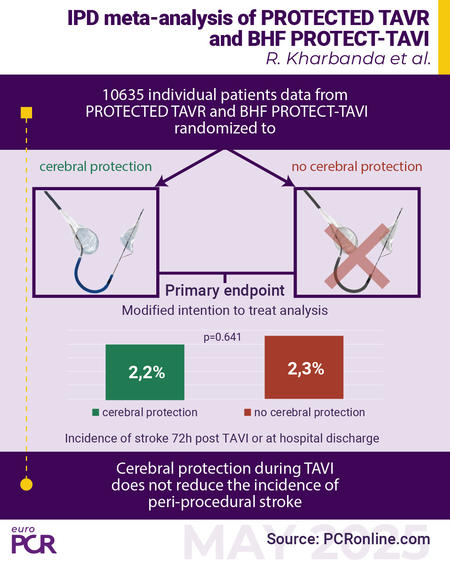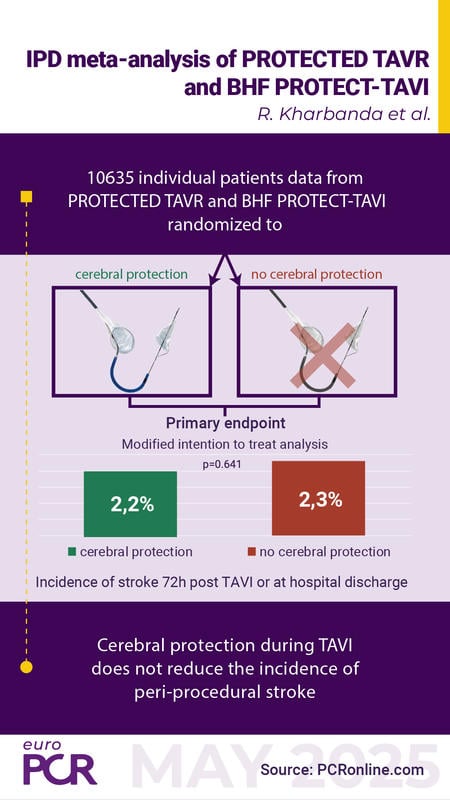21 May 2025
Spotlight on major Late-Breaking Trials presented at EuroPCR 2025
The EuroPCR Course Directors have selected 3 major late-breaking trials which were presented during the Course's 2025 edition.
These trials were selected because of their design, results, and potential to impact practice: Discover the key findings of the 4D-ACS and FAITAVI randomised clinical trials and a meta-analysis of PROTECTED TAVR and BHF PROTECT TAVI.
Table of content
One-month dual antiplatelet therapy followed by prasugrel monotherapy at a reduced dose: the 4D-ACS randomised trial
The 4D-ACS trial explored a one-month DAPT regimen followed by low-dose monotherapy in ACS patients treated with drug-coated stents. The approach significantly reduced bleeding without increasing ischaemic events, highlighting a promising shift toward more patient-tailored antiplatelet strategies—especially for those at higher bleeding risk.
Get Mirvat Alasnag’s take on the data:
The FAITAVI trial: angiography versus physiology-guided PCI in patients undergoing TAVI – 12-month follow-up data
FAITAVI is the first study comparing FFR-guided PCI with angiography-guided PCI in patients with intermediate CAD and severe symptomatic AS undergoing TAVI, FFR-guided PCI was associated with a lower rate of MACCE at 12 months of follow-up.
Erik Rafflenbeul breaks down the key insights:
Meta-analysis of individual patient data from the PROTECTED TAVR and BHF PROTECT-TAVI trials
Despite a clear rationale leading to the development of CEP, this meta-analysis of individual data from these two large RCTs clearly demonstrated that there was no benefit of the routine use of cerebral embolic protection with the SENTINEL device during TAVI to reduce the risk of peri-procedural stroke.
Guillaume Bonnet gives you the essentials:



